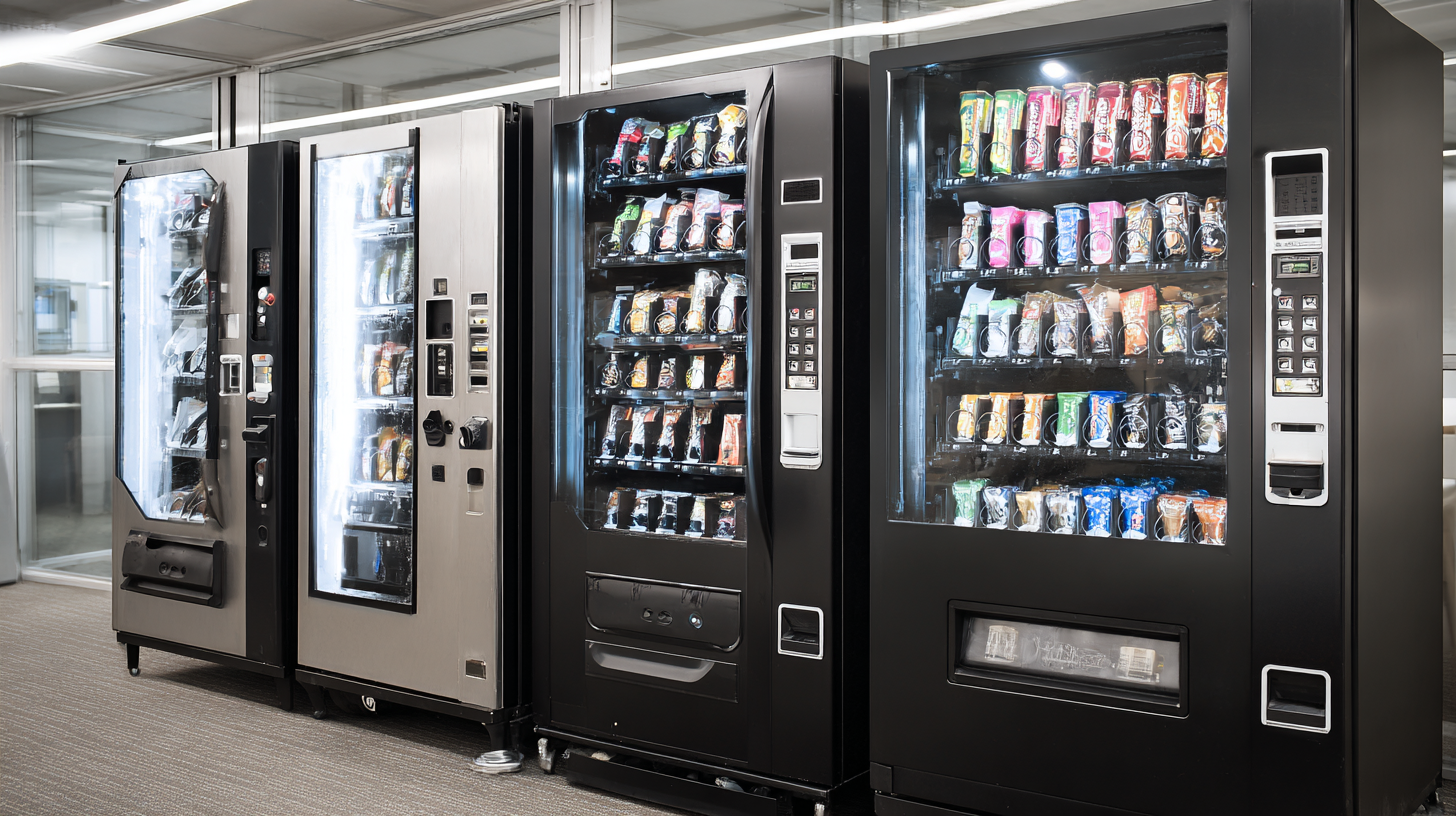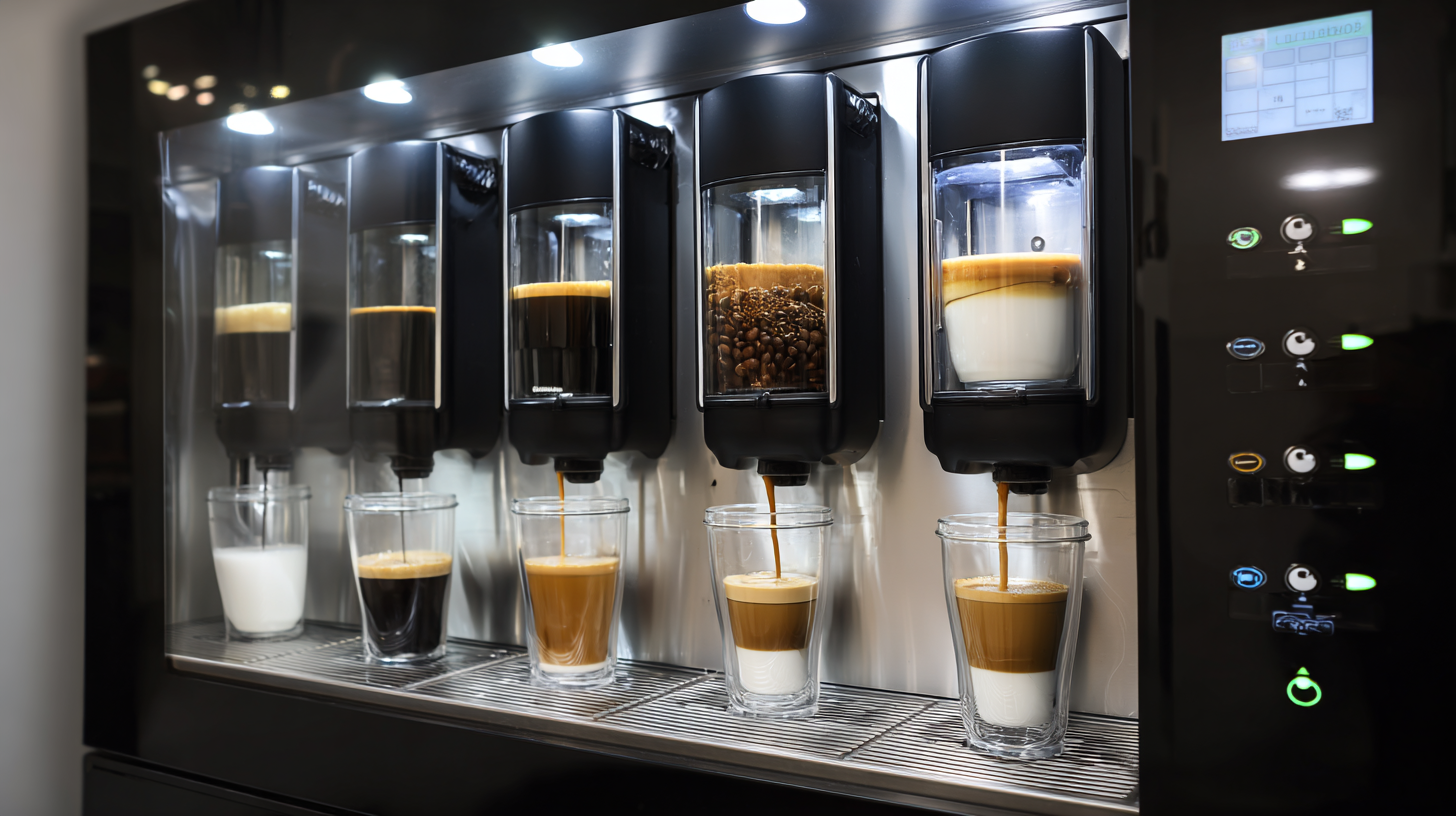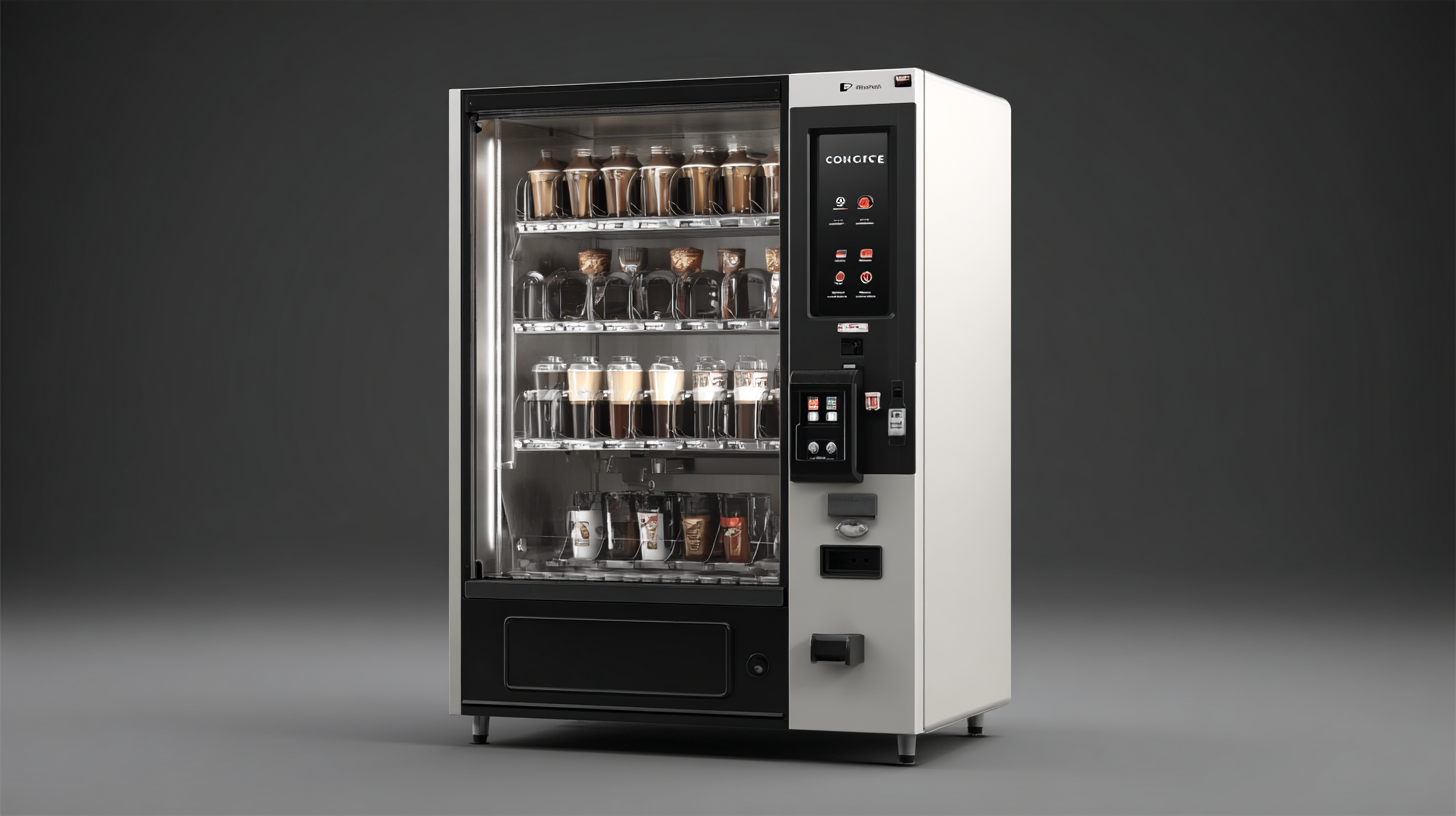Understanding Global Production Standards for Selecting the Best Coffee Vending Machine
As the global coffee vending machine market continues to expand, with a projected growth rate of 4.6% annually from 2021 to 2026, understanding the production standards becomes crucial for selecting the best options. This growth is driven by the increasing demand for convenient coffee solutions in workplaces, universities, and public spaces. Notably, China has emerged as a leading manufacturer in this sector, blending innovation with high-quality standards. Reports from industry experts suggest that machines equipped with advanced brewing technology and user-friendly interfaces not only enhance customer satisfaction but also drive sales. With an estimated market value of over $1.5 billion, the importance of choosing the right coffee vending machine intensified, particularly as consumers become more discerning about quality and sustainability. Therefore, navigating through global production standards is imperative for those seeking to provide an exceptional coffee experience while capitalizing on this lucrative market.

Maximizing Quality: The Role of Global Production Standards in Coffee Vending Machines
In the coffee vending machine industry, adherence to global production standards is crucial for ensuring quality and consistency. A recent report by the International Coffee Organization highlights that approximately
60% of coffee consumed worldwide is sourced from vending machines, making it imperative that these machines meet stringent quality benchmarks. Global standards, such as ISO 9001 for quality management systems, play a vital role in this sector by ensuring that manufacturers maintain a high level of service and product quality.
Machines that are compliant with these standards not only enhance the taste and quality of the coffee served but also increase customer satisfaction and retention.
Moreover, the integration of high production standards results in lower maintenance costs and increased machine longevity. According to a study published by the European Vending Association, vending machines that conform to recognized quality standards experience a
25% reduction in operational failures compared to non-compliant counterparts. This not only translates to cost savings for operators but also reinforces the positive customer experience by providing consistently high-quality beverages.
As competition in the coffee vending sector intensifies, understanding and implementing global production standards will be essential for businesses aiming to maximize their offerings and maintain a competitive edge.
Evaluating Efficiency: How Production Standards Enhance Machine Performance
When selecting a coffee vending machine, understanding global production standards becomes essential in evaluating its efficiency. Production standards serve as benchmarks that define the quality and performance of these machines. Adherence to international standards ensures that the machines function effectively in diverse environments, promoting consistency and minimizing breakdowns. For operators, this translates to lower maintenance costs and fewer disruptions in service, ultimately enhancing customer satisfaction.
Moreover, production standards influence the technology integrated into coffee vending machines. Machines built under strict guidelines often leverage advanced brewing techniques and energy-efficient systems, optimizing the coffee-making process. As a result, these machines not only deliver superior taste but also reduce resource consumption, making them a sustainable choice. By investing in machines that meet high production standards, businesses can ensure they are selecting equipment that enhances both operational efficiency and overall consumer experience.

Sustainability Matters: The Environmental Benefits of Adhering to Production Standards
Sustainability has become a critical factor in the coffee industry, especially as consumers increasingly prioritize environmentally responsible choices. Adhering to global production standards can significantly reduce a coffee vending machine's environmental footprint. According to the International Coffee Organization, around 70% of coffee production affects ecosystems, leading to deforestation and biodiversity loss. By selecting machines that comply with sustainability standards, operators can support practices such as shade-grown coffee, which not only preserve habitats but also enhance coffee quality.
Moreover, studies have shown that sustainable practices can increase profitability for coffee vending machine operators. The Coffee Sustainability Program reports that certified sustainable coffee can command a higher market price, with some premium brands achieving a sales uplift of up to 30%. By investing in machines designed for energy efficiency and waste reduction, businesses can further bolster their sustainability credentials. Moreover, eco-friendly vending machines often incorporate features such as recyclable cups and energy-saving settings, which minimize waste and lower operational costs, thus creating a positive cycle of environmental and economic benefits.
Consumer Confidence: Building Trust Through High-Quality Coffee Vending Machines
In today's fast-paced world, coffee vending machines have become a convenient solution for caffeine enthusiasts seeking a quick fix. To build consumer confidence and trust, it is essential that these machines adhere to high production standards, ensuring quality outcomes for every cup served. A coffee vending machine should not only deliver delicious coffee but also maintain a consistent level of service and cleanliness to attract repeat customers.
When selecting a coffee vending machine, consider the following tips: First, prioritize models that offer customizable options, allowing users to tailor their coffee experience to individual tastes. This personal touch can significantly enhance satisfaction levels and foster brand loyalty. Secondly, ensure that the machine’s components are made of durable materials and are easy to clean. A machine that is simple to maintain will uphold hygiene standards and provide a reliable product that consumers can trust.
Lastly, always evaluate customer feedback and reviews when choosing a vending machine. This insight can reveal how well a machine performs in real-world settings and highlight any potential issues. Trust is built not only through the quality of coffee offered but also through the assurance that the machines are reliable and uphold high standards every time a consumer stops for their favorite brew.
Cost-Effectiveness: Balancing Quality and Affordability in Coffee Vending Solutions
When considering coffee vending machines, cost-effectiveness is key to ensuring a wise investment. The ideal machine not only delivers exceptional quality coffee but also remains budget-friendly. Businesses often grapple with the challenge of balancing these two factors. Investing in a higher-end machine might mean better quality brews, but it can place a strain on finances, especially for smaller establishments or startups. Therefore, it's essential to evaluate the price-to-value ratio and identify machines that offer reliable performance without compromising taste.
Moreover, ongoing maintenance and ingredient costs are crucial in this equation. A cost-effective coffee vending solution should minimize overall expenses while ensuring that customers receive a satisfying product consistently. Features like customizable settings and energy efficiency can contribute to long-term savings. Thus, when selecting the right coffee vending machine, businesses must not only focus on the upfront purchase price but also consider how operational efficiency and quality amalgamate over time for sustainable growth.

